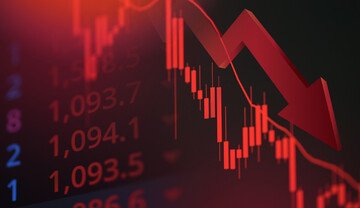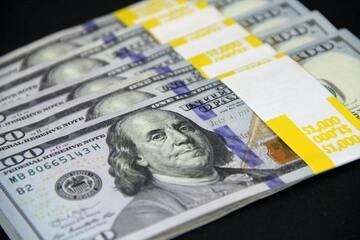In economics, a recession is a business cycle contraction when there is a general decline in economic activity.[1][2] Recessions generally occur when there is a widespread drop in spending (an adverse demand shock). This may be triggered by various events, such as a financial crisis, an external trade shock, an adverse supply shock, the bursting of an economic bubble, or a large-scale anthropogenic or natural disaster (e.g. a pandemic).
In the United States, a recession is defined as "a significant decline in economic activity spread across the market, lasting more than a few months, normally visible in real GDP, real income, employment, industrial production, and wholesale-retail sales."[3] The European Union has adopted a similar definition.[4][5] In the United Kingdom, a recession is defined as negative economic growth for two consecutive quarters.[6][7]











